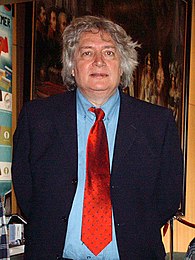
Anatoly Yevgenyevich Karpov is a Russian and former Soviet chess grandmaster, former World Chess Champion, and politician. He was the 12th World Chess Champion from 1975 to 1985, a three-time FIDE World Champion, twice World Chess champion as a member of the USSR team, and a six-time winner of Chess Olympiads as a member of the USSR team. The International Association of Chess Press awarded him nine Chess Oscars.

The International Chess Federation or World Chess Federation, commonly referred to by its French acronym FIDE, is an international organization based in Switzerland that connects the various national chess federations and acts as the governing body of international chess competition. FIDE was founded in Paris, France, on July 20, 1924. Its motto is Gens una sumus, Latin for 'We are one Family'. In 1999, FIDE was recognized by the International Olympic Committee (IOC). As of December 21, 2023, there are 201 member federations of FIDE.
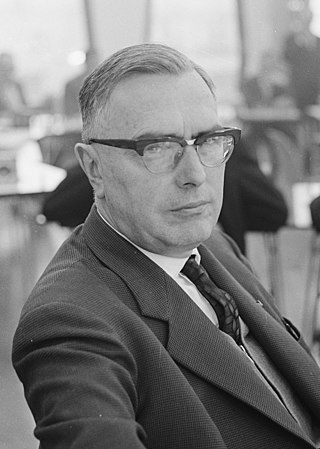
Machgielis "Max" Euwe was a Dutch chess player, mathematician, author, and chess administrator. He was the fifth player to become World Chess Champion, a title he held from 1935 until 1937. He served as President of FIDE, the World Chess Federation, from 1970 to 1978.

Yasser Seirawan is a Syrian-born American chess grandmaster and four-time United States champion. He won the World Junior Chess Championship in 1979. Seirawan is also a published chess author and commentator.

Nigel David Short is an English chess grandmaster, columnist, coach and commentator who has been the FIDE Director for Chess Development since September 2022. Short earned the title of grandmaster at the age of 19 and was ranked third in the world by FIDE from July 1988 to July 1989. In 1993, he became the first English player to play a World Chess Championship match, when he qualified to play Garry Kasparov in the PCA world championship in London, where Kasparov won 12½ to 7½.

The Tata Steel Chess Tournament is an annual chess tournament held in January in Wijk aan Zee, the Netherlands. It was called the Hoogovens Tournament from its creation in 1938 until the sponsor Koninklijke Hoogovens merged with British Steel to form the Corus Group in 1999, after which the tournament was called the Corus Chess Tournament. Corus Group became Tata Steel Europe in 2007. Despite the name changes, the series is numbered sequentially from its Hoogovens beginnings; for example, the 2011 event was referred to as the 73rd Tata Steel Chess Tournament.
The Professional Chess Association (PCA), which existed between 1993 and 1996, was a rival organisation to FIDE, the international chess organization. The PCA was created in 1993 by Garry Kasparov and Nigel Short for the marketing and organization of their chess world championship.
The Candidates Tournament is a chess tournament organized by FIDE, chess's international governing body, since 1950, as the final contest to determine the challenger for the World Chess Championship. The winner of the Candidates earns the right to a match for the World Championship against the incumbent world champion.

Valery Salov is a Russian chess grandmaster who was ranked third in the world in 1995.
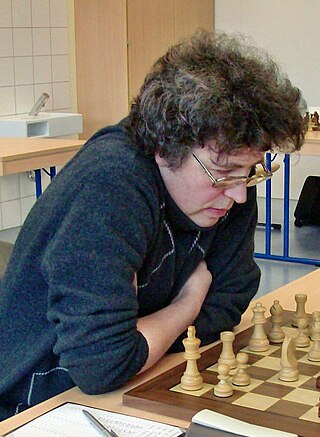
Andrei Yurievich Sokolov is a chess Grandmaster of Russian origin, now living in France. He was one of the leading players in the world in the late 1980s.
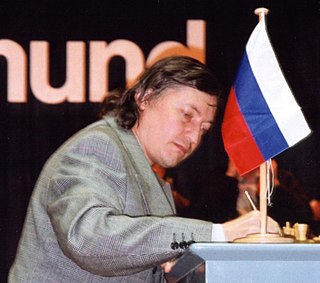
The FIDE World Chess Championship 1996 was a chess tournament held by FIDE to determine the World Chess Champion.
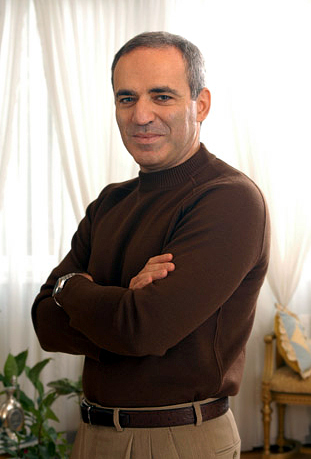
The World Chess Championship 1993 was one of the most controversial matches in chess history, with incumbent World Chess Champion Garry Kasparov, and official challenger Nigel Short, splitting from FIDE, the official world governing body of chess, and playing their title match under the auspices of the Professional Chess Association. In response, FIDE stripped Kasparov of his title, and instead held a title match between Anatoly Karpov and Jan Timman.
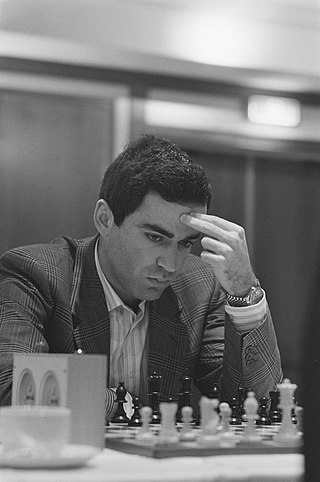
The World Chess Championship 1990 was played between Garry Kasparov and Anatoly Karpov. It was the fifth and final Kasparov–Karpov championship match, and saw Kasparov win by a single point.
Below is a list of events in chess in 1993, as well as the top ten FIDE rated chess players of that year.
Below is a list of events in chess in 1991, as well as the top ten FIDE rated chess players of that year.

The FIDE World Chess Championship 1998 was contested in a match between the FIDE World Champion Anatoly Karpov and the challenger Viswanathan Anand. The match took place between 2 January and 9 January 1998 in Lausanne, Switzerland. The challenger was determined in a tournament held in Groningen, Netherlands, between 9 December and 30 December 1997. After the championship match ended in a draw, Karpov won the rapid playoff, becoming the 1998 FIDE World Chess Champion.

The 1975 World Chess Championship was not played due to a dispute over the match format. Champion Bobby Fischer was to play Anatoly Karpov in Manila, commencing June 1, 1975. Fischer refused to play the then-standard "Best of 24 games" match and, after FIDE was unable to work out a compromise, forfeited his title instead. Karpov was named World Champion by default on April 3, 1975.

Igor Vasilyevich Ivanov was a Russian-born chess grandmaster who defected from the Soviet Union to Canada in 1980. A four-time winner of the Canadian chess championship, he represented Canada at an interzonal tournament for the world chess championship and was a Canadian team member at two Chess Olympiads. He also was a nine-time US Grand Prix chess champion.

